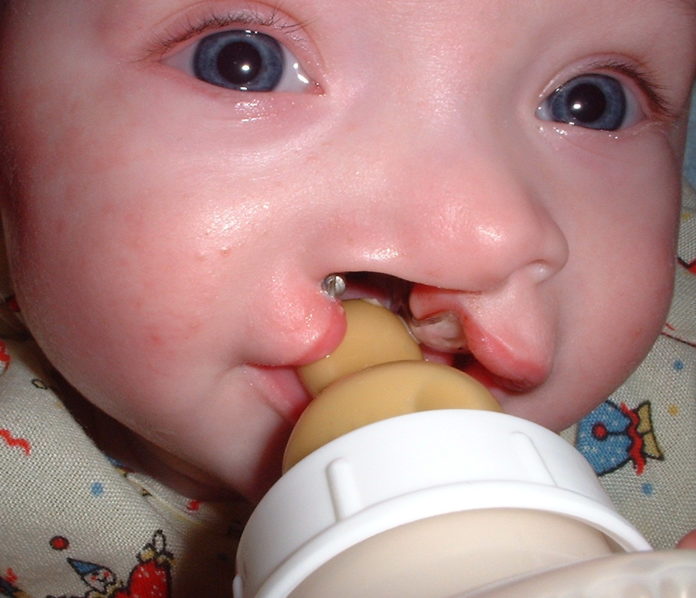The workshop at the All India Institute of Medical Sciences trained more than 100 orthodontists from across the country on how to provide treatment for cleft lip
A “first-of-its-kind” workshop was held in AIIMS to train more than 100 orthodontists from across the country and Nepal to provide comprehensive treatment for facial deformities in children like cleft lip.
Specialists from medical and dental fraternity, including plastic surgeons, cleft orthodontists, pediatricians, clinical geneticist and clinical psychologists, contributed as course faculty to sensitise participants about complete protocols of cleft treatment with greater emphasis on correcting deformities of face due to poor dental alignment and unintelligible speech.
Cleft lip or cleft palate is a condition when the two sides of the lip, developing in an unborn baby, do not completely fuse. It adversely affects nutrition, leads to chest infections, ear problems, poor speech and inability in proper chewing.
The abnormal arrangement of teeth, poor jaw relations and facial aesthetics make a child socially and functionally handicap. Cleft lip and palate anomaly constitute nearly one-third of all congenital malformations of the craniofacial region with an average worldwide incidence of one in 700, said Prof Kharbanda, an eminent cleft craniofacial orthodontist and chief of the Centre for Dental Education and Research at AIIMS here.
Cleft lip or cleft palate is a condition when the two sides of the lip, developing in an unborn baby, do not completely fuse. It adversely affects nutrition, leads to chest infections, ear problems, poor speech and inability in proper chewing
Its incidence in the Asian population is reported to be around 1.7 per 1,000 live births or higher. In India, more than 35,000 cleft children are born every year, and they add to huge existing patients, many of whom may not have received the required comprehensive treatment, the doctor said.
“Only a fortunate few have the opportunity to get comprehensive cleft care. Although most patients nowadays get cleft surgery treatment, the outcomes are not necessarily reflective of quality care. They remain deprived of the two major aspects — correction of disfigurement of the face due to poor dental alignment and poor speech,” he said.
A multi-centric hospital-based study from different cities conducted by the All India Institute of Medical Sciences (AIIMS) as part of an Indian Council of Medical Research’s task force India-Cleft project revealed that around 35 per cent of patients show poor outcomes like a hole remaining in palate and complex dental disfigurement after cleft surgery. Also, about 70 per cent of patients presented with difficulties in speech.
To spread awareness of interdisciplinary care and improve the quality of treatment, it is essential to train different specialists involved in cleft care about protocols of treatment, Kharbanda said.
The three-day workshop, built as first-of-its-kind, was held in collaboration with the Indian Orthodontic Society recently. It trained over 100 orthodontists from different parts of the country and Nepal, he said.
The workshop emphasised the need for interdisciplinary care and provided the delegates with a complete treatment template starting from antenatal counselling through adulthood and extending beyond marriage in the form of genetic counselling.
“It is perhaps one of the most significant attempts in the world where such a large number of orthodontists were empowered on the holistic management of cleft lip and palate anomalies and enabled them to interact with other specialists from other disciplines like plastic surgeons, cleft surgeons, cleft and craniofacial orthodontists, clinical geneticists, clinical psychologists and speech specialists,” he said.
Dr Tradib Jayapal, an eminent orthodontist from Cochin and vice president of the Indian Orthodontic Society, said, “There exists treatment protocol of varying standards, and this programme will lay down a blueprint to start holistic cleft management.”
He also emphasised the need for a uniform protocol across the country.
This workshop is an initial step towards achieving the goal, Jayapal said.
These orthodontists, who have been trained on treatment protocols about cleft lip and palate anomalies, are expected to spearhead “multidisciplinary cleft care teams” in their districts to provide comprehensive treatment for improving esthetics, treat dental alignments and support speech to help cleft children lead a normal life.
Dr Mustafa Khader, a prominent cleft surgeon from Mangalore, said the programme would serve to highlight the role of an interdisciplinary approach and forge a good alliance between different specialists like surgeon, orthodontists and speech therapists to improve the overall outcomes in cleft care.
Dr Riddhi Bagaria, an orthodontic practitioner and a trainee from Kolkata, said the main motive of coming to this programme was to gain knowledge of various treatment options available for cleft patients.
“This workshop has helped me to know the different modalities and their rational of use, which I did not know earlier,” she said.


